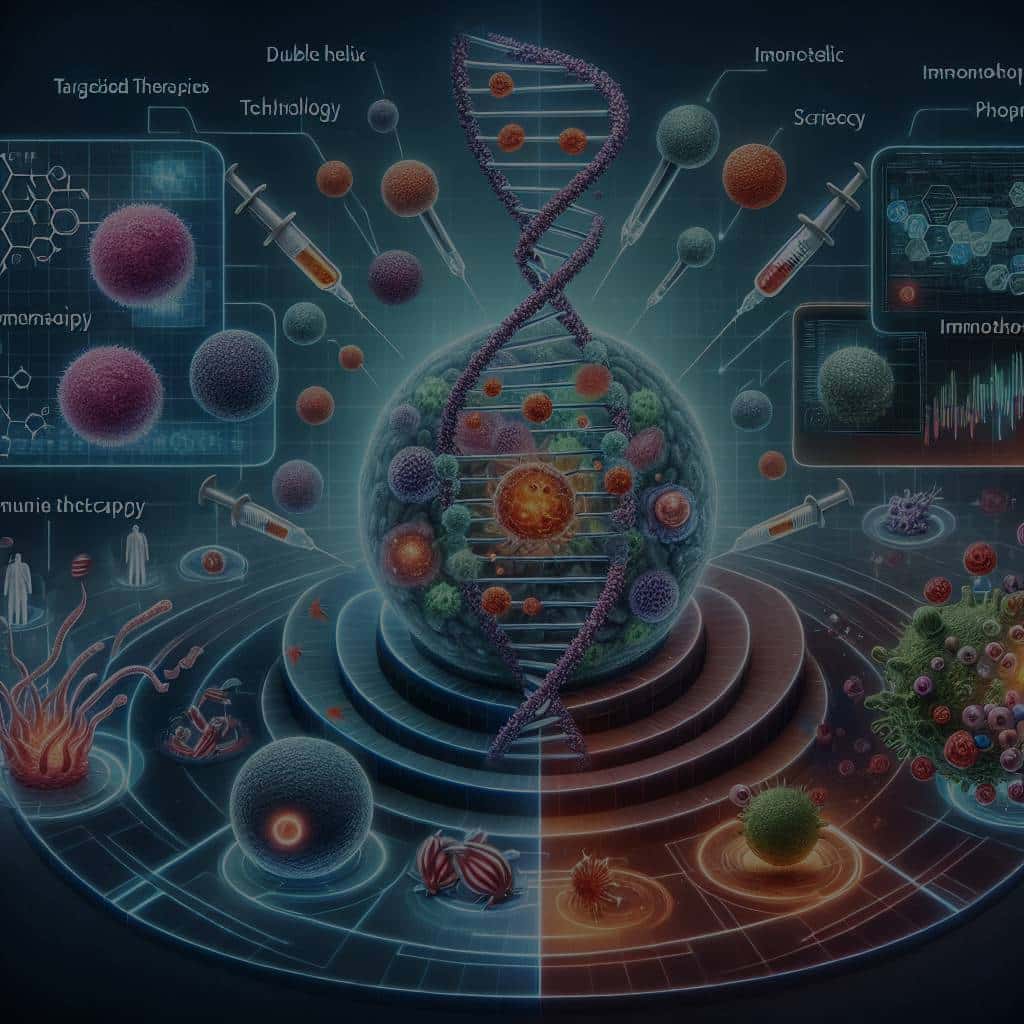What Are the Latest Techniques in Precision Medicine for Cancer Treatment?

Precision medicine represents a paradigm shift in the healthcare sector, with cancer care at the front and center of this revolution. As the disease continues to pose a significant health challenge globally, the application of precision medicine has become increasingly fundamental in tailoring cancer treatment. This approach capitalizes on genetic, clinical, molecular, and environmental information about each patient to deliver the most effective care.
Precision Medicine: A Revolution in Cancer Treatment
Precision medicine, referred to as personalized or individualized medicine, revolves around tailoring medical treatment to the individual characteristics of each patient. It bases this customization on understanding how a patient’s genetic makeup interacts with their environment and lifestyle to affect their health. In the context of cancer, precision medicine allows for an in-depth analysis of the patient’s tumor at the molecular level.
Additional reading : What’s the Latest in Deep Sea Exploration Tech for Marine Biologists?
Traditional chemotherapy and radiation therapies are often a case of ‘one-size-fits-all’. However, these treatments can be too toxic for some patients or ineffective in others. Precision medicine aims to address these limitations by offering targeted therapies based on the molecular and genetic profiles of the patient’s cancer cells.
Cancer Genomics: The Genetic Basis of Precision Medicine
Cancer genomics is the study of the totality of genes in a cancer cell, providing insights into the genetic mutations that lead to cancer. Utilizing high-throughput sequencing technologies, scientists can now analyze entire genomes within single tumor cells, revealing the genetic variation within tumors, a phenomenon known as tumor heterogeneity.
Also to read : How to Cultivate Rare and Exotic Orchids in a UK Urban Garden?
This genetic information becomes a powerful tool in the hands of oncologists. They can use it to predict which treatments a patient’s tumor is likely to respond to and which they are likely to resist. Furthermore, genetic testing can identify inherited mutations, which can inform decisions about preventive measures and early detection strategies for individuals at high risk.
Molecular Profiling: Unveiling the Tumor’s Identity
While cancer genomics concerns the study of genetic changes, molecular profiling goes further to explore the proteins produced by these genes. This process is vital in establishing the identity of a tumor and understanding its behavior.
Molecular profiling involves testing the tumor tissue to identify specific proteins, gene mutations, or changes in gene expression that are unique to the tumor. The results can guide the choice of targeted therapy, offering a more personalized treatment approach. For instance, in breast cancer care, molecular profiling can identify patients likely to benefit from certain targeted therapies, such as hormone therapy or HER2-targeted therapy.
Applications of Precision Medicine in Cancer Care
Precision medicine isn’t just about treatment; it encompasses prevention, diagnosis, and care management. In prevention, genetic testing can identify individuals at high risk for certain types of cancer, guiding preventive interventions and early detection strategies.
For diagnosis, precision medicine techniques like molecular profiling can help classify cancers more accurately, leading to more precise treatment decisions. For instance, lung cancers were once classified as small cell or non-small cell. Today, they are also classified based on genetic alterations, leading to more effective targeted therapies.
In terms of care management, precision medicine can help monitor disease progression and response to treatment. Biomarkers, substances that signal normal or abnormal processes in the body, can be used to track the effectiveness of a therapy and guide adjustments if necessary.
Challenges and Future Directions of Precision Medicine
While there are numerous benefits to precision medicine, there are also several challenges to its implementation. These include issues of cost, access, and equity; the need for extensive genetic and molecular testing; concerns about data privacy; and the need for further research and clinical trials to validate potential treatments.
Despite these challenges, the future of precision medicine is promising. Innovative techniques are continually being developed, and our understanding of cancer at the molecular and genetic levels continues to deepen. The potential for precision medicine to improve patient outcomes, minimize side effects, and enhance quality of life, leaves no doubt that it will continue to play an increasingly pivotal role in cancer care.
Precision Medicine and Clinical Trials: A Powerful Synergy
Clinical trials are a critical aspect of precision medicine, serving as the bridge between scientific research and practical, beneficial therapies for patients. Clinical trials help determine the safety and effectiveness of new treatments, including targeted therapies based on a patient’s genetic profile, and often represent the final step before a new medicine is introduced to the general public.
In relation to cancer, clinical trials can play a pivotal role in the development of new, more effective treatments. By focusing on the unique genetic and molecular profile of each patient, researchers are able to develop therapies that specifically target the cancer cells in a given patient. This precision medicine approach has been especially effective in the treatment of certain types of cancer, including metastatic breast cancer.
In clinical trials for metastatic breast cancer, for example, precision medicine has been instrumental in the development of targeted therapies. These therapies aim to inhibit the growth of cancer cells by interfering with the specific molecular alterations that are driving cancer growth. This approach has proven more effective and less toxic than traditional chemotherapy, improving both survival rates and quality of life for patients.
However, it’s worth noting that the integration of precision medicine into clinical trials comes with its own challenges. The complexity of the genetic and molecular data derived from patients requires advanced data analysis techniques and specialized expertise. Issues of cost, patient privacy, and equitable access to trials remain significant hurdles.
Despite these challenges, the combination of precision medicine and clinical trials represents a powerful tool in the fight against cancer. As our understanding of the molecular and genetic basis of cancer continues to advance, it’s expected that precision medicine will increasingly become the standard in cancer treatment.
Conclusion: The Future of Precision Medicine in Cancer Care
In conclusion, precision medicine is revolutionizing the field of cancer care. By taking into account the unique genetic, molecular, and environmental factors of each patient, precision medicine allows for more effective and personalized treatment strategies. From prevention to diagnosis, treatment, and care management, precision medicine is transforming every facet of health care.
The rise of precision medicine has not been without challenges, including the need for advanced data analysis, concerns about patient privacy, and issues around cost and access. However, as our understanding of the disease at the genetic and molecular level continues to grow, so too does the potential of precision medicine.
Even now, new techniques are constantly being developed and refined, bringing us ever closer to a future where every patient receives a treatment plan as unique as they are. Clinical trials are playing an increasingly important role in this evolution, bridging the gap between scientific discovery and real-world application.
The continued integration of precision medicine into cancer care is not just a possibility – it’s an inevitability. As we move forward, it’s crucial that we continue to prioritize research and development in this area, and work to ensure that the benefits of precision medicine are accessible to all.
